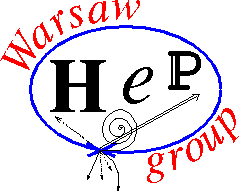SEMINARIUM FIZYKI WIELKICH ENERGII
Dnia 2 Grudnia (piątek) o godzinie 10:15, w sali B2.38 odbędzie się
seminarium, na którym zostanie wygłoszony referat pt.:
„New T2K Oscillation Results”
Referuje: Kamil Skwarczyński (NCBJ)
Abstract:
T2K is a long-baseline neutrino oscillation experiment, which studies the oscillations of neutrinos from a beam produced using the J-PARC accelerator chain. The neutrino beam propagates over 295 km before reaching the Super-Kamiokande detector, where they can be detected after having oscillated. The ability of the experiment to run with either neutrino beams or anti-neutrino beam makes it well suited to study the differences between the oscillations of neutrinos, in particular to look for a possible violation of CP symmetry in the lepton sector. T2K has produced a new analysis of its first 10 years of data, with improved models to describe neutrino interactions and fluxes as well as additional samples of near and far detector events. We will present the results of the measurement of the parameters describing neutrino oscillations obtained with the new analysis.
Serdecznie zapraszamy
dr hab. Katarzyna Grzelak
prof. dr hab. Jan Królikowski
prof. dr hab. Aleksander Filip Żarnecki

